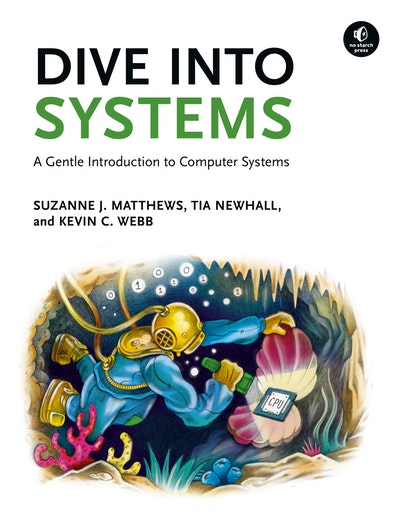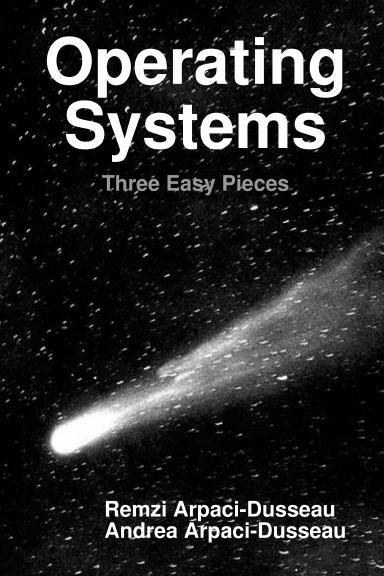|
|
Some recommended (not required) books on Operating Systems:
No specific text on operating systems is required for this unit.
There are a number of very well respected operating system textbooks and
authors, and reading relevant sections from any of these texts will
certainly benefit your understanding of operating systems.
While this page lists the most recent editions of some textbooks,
and these editions have the advantage of being the most up-to-date and
having past errors corrected,
past editions of these texts (up to 5-8 years old),
found in libraries or purchased second-hand,
will be very suitable.
You may like to read a review of any book you are considering.
Online bookstores, such as Amazon, also include many reviews by their customers.
A great book price+shipping comparison website:
www.booko.com.au
Excellent free textbooks covering selected Operating Systems topics:

|
Dive into Systems
Suzanne J. Matthews, Tia Newhall, and Kevin C. Webb.
This work is licensed under the CC BY-NC-ND 4.0 License.
July, 2023.
Dive into Systems is a free, online textbook that serves as a
gentle introduction to computer systems, computer organization,
and parallel computing.
- how a computer runs a program, from a program expressed in a high-level
language to low-level binary representation and circuits
- programming in C and Assembly, assuming a Python CS1 background
- introduction to operating systems and the systems costs that affect
program performance (the memory hierarchy, caching, and code optimization)
- introduction to parallel computing with shared memory and pthreads
|

|
Operating Systems: Three Easy Pieces
Remzi H. Arpaci-Dusseau, Andrea C. Arpaci-Dusseau, and Peter Reiher.
Arpaci-Dusseau Books
August, 2018 (Version 1.00)
The book is centered around three conceptual pieces that are fundamental
to operating systems: virtualization, concurrency, and persistence. In
understanding the conceptual, you will also learn the practical, including
how an operating system does things like schedule the CPU, manage memory,
and store files persistently.
(disturbing, but the book has
its own merchandise)
|
Excellent first textbooks on Operating Systems:
Some advanced books on Operating Systems:
|

